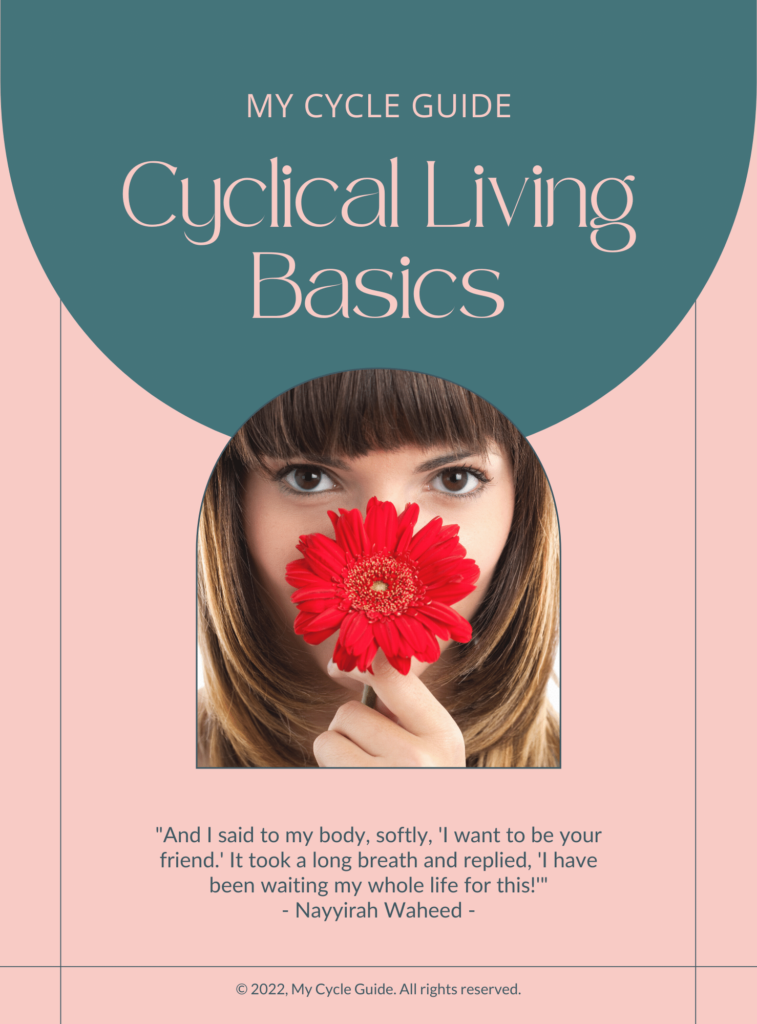Understanding Fatigue – Fatigue is a sense of ongoing tiredness or exhaustion that isn’t relieved by rest. It’s not merely feeling sleepy – it can affect your physical capabilities, impair cognitive function, and disrupt emotional stability.
Why is Understanding Fatigue in Cyclical Living Important?
During the menstrual cycle, you may notice changes in your energy levels that correspond to its phases. Recognizing your patterns helps you to predict periods of fatigue and adjust your schedule, self-care practices, or workload accordingly. This understanding helps you maintain productivity, emotional balance, and overall health throughout your menstrual cycle.
How Does Fatigue Relate to the Menstrual Cycle?
During menstruation, the drop in hormone levels (particularly progesterone) can lead to feelings of fatigue. Moreover, in the luteal phase (the week before menstruation), increased production of progesterone can cause sleepiness and a lack of energy. By understanding these cyclical changes, you can anticipate and manage fatigue more effectively.
Different Aspects of Fatigue in Cyclical Living
Aside from hormones, other factors like diet, exercise, sleep quality, and stress levels can influence fatigue. Consuming a balanced diet, staying physically active, getting quality sleep, and managing stress are crucial in maintaining energy levels throughout your menstrual cycle.
How Can You Manage Cyclical Fatigue?
Effective management of fatigue involves:
- Cycle tracking: Identifying patterns in your energy levels throughout your cycle allows you to anticipate fatigue and adjust your activities accordingly.
- Healthy lifestyle: Regular physical activity, balanced nutrition, good sleep hygiene, and effective stress management contribute to maintaining steady energy levels.
- Restorative practices: Activities like yoga, meditation, and deep breathing can help replenish your energy reserves.
- Professional help: If fatigue persists despite your efforts or if it affects your quality of life, consider seeking medical help.
The Emotional Impact of Fatigue
Chronic fatigue can adversely impact your emotional health, leading to a decreased sense of motivation, mood fluctuations, and a lower stress threshold. However, knowledge about your cycle and strategic planning can help you manage these emotional shifts effectively.
Frequently Asked Questions about Fatigue and Cyclical Living
- Why do I feel more fatigued during menstruation and the luteal phase? The hormonal changes during these phases, such as a drop in estrogen and a rise in progesterone, can cause feelings of tiredness or lack of energy.
- How can I manage fatigue during my menstrual cycle? Alongside maintaining a balanced lifestyle and practicing restorative activities, tracking your menstrual cycle can help you anticipate and manage periods of fatigue.
- When should I seek help for fatigue? If fatigue consistently affects your ability to function normally or doesn’t improve despite rest and self-care, it may be time to seek medical advice.
To understand more about your menstrual cycle, how to track it, and manage related issues, refer to our Free Workbook – Guide to Tracking Your Menstrual Cycle and accompanying Cyclical Living Basics eBook.
